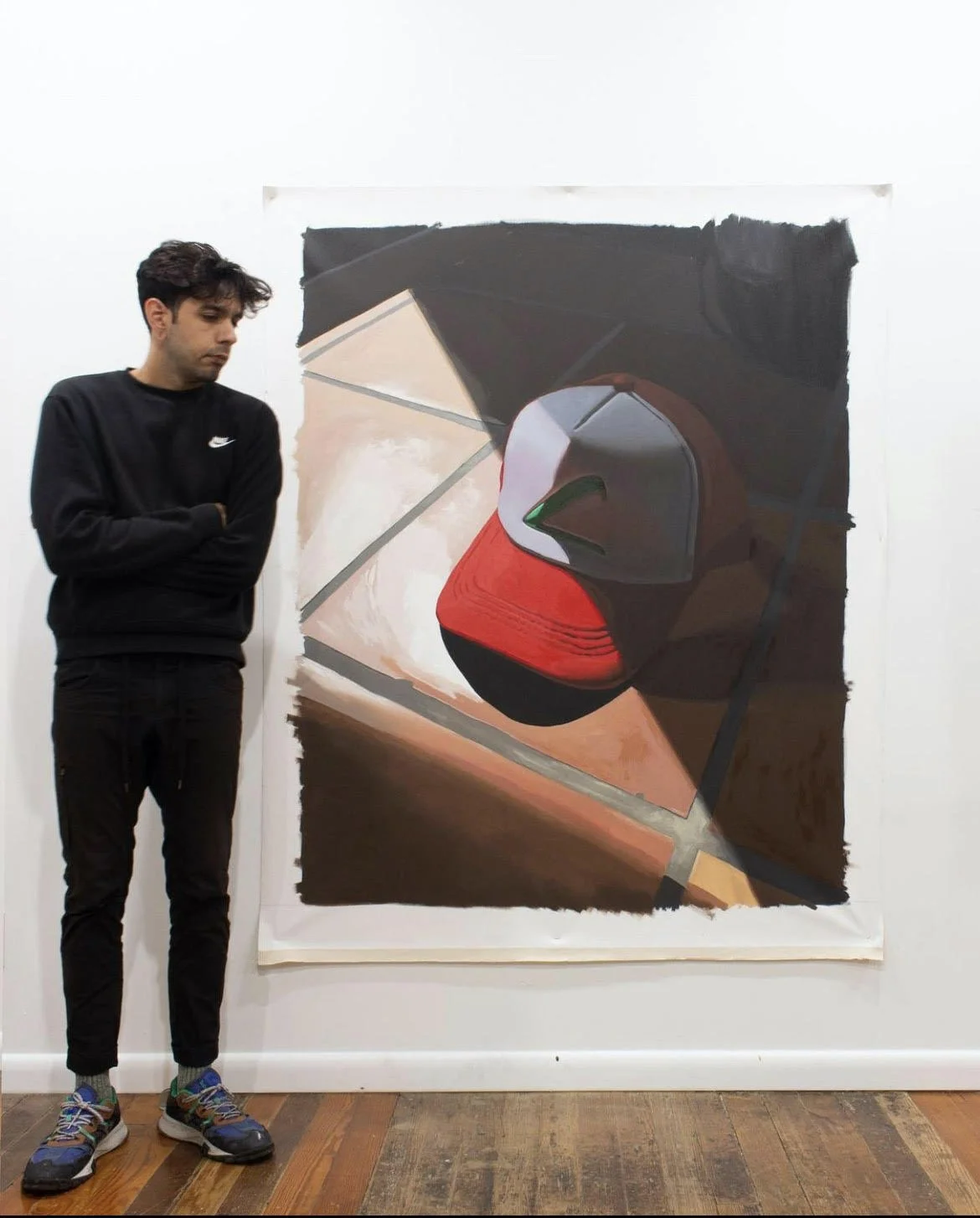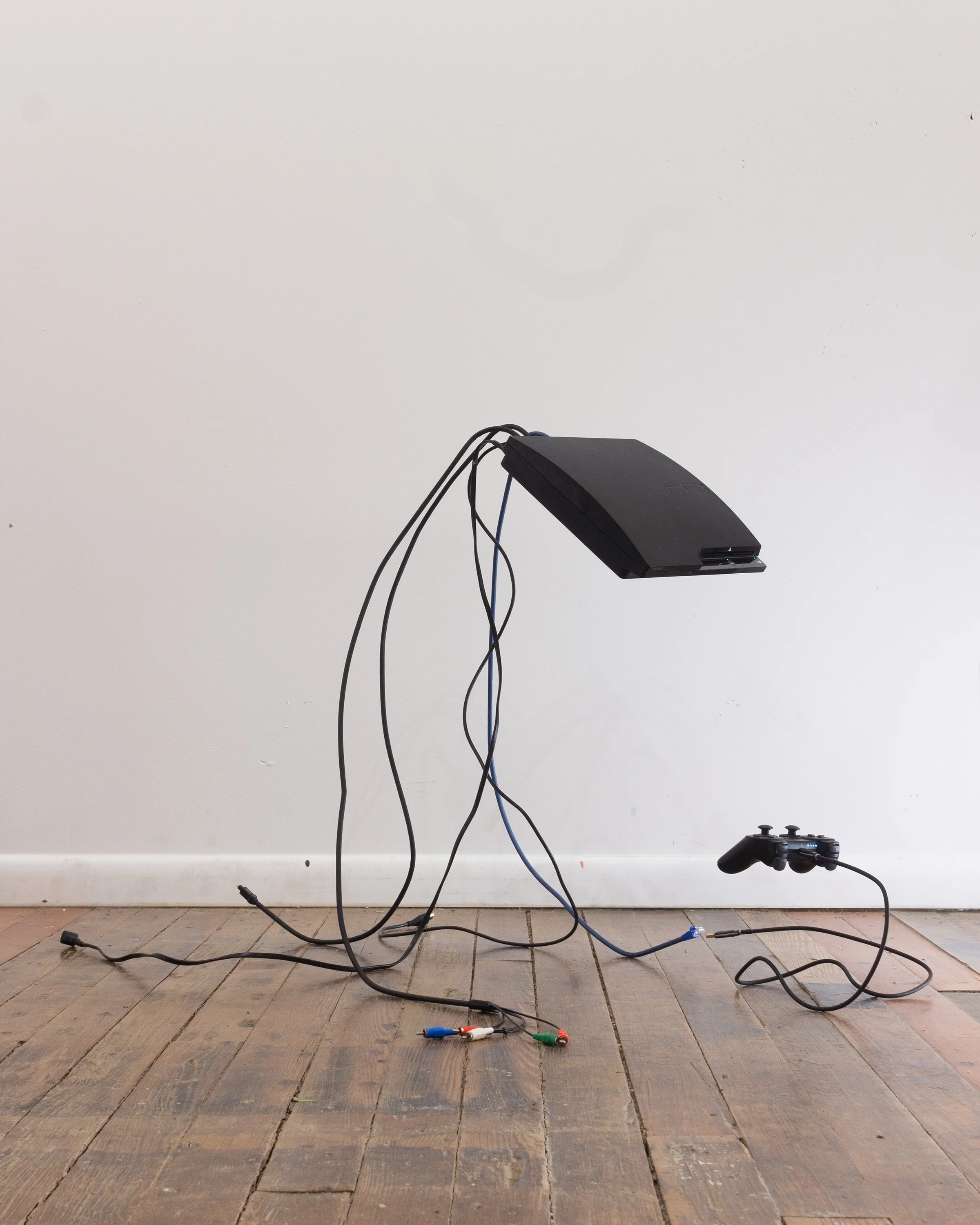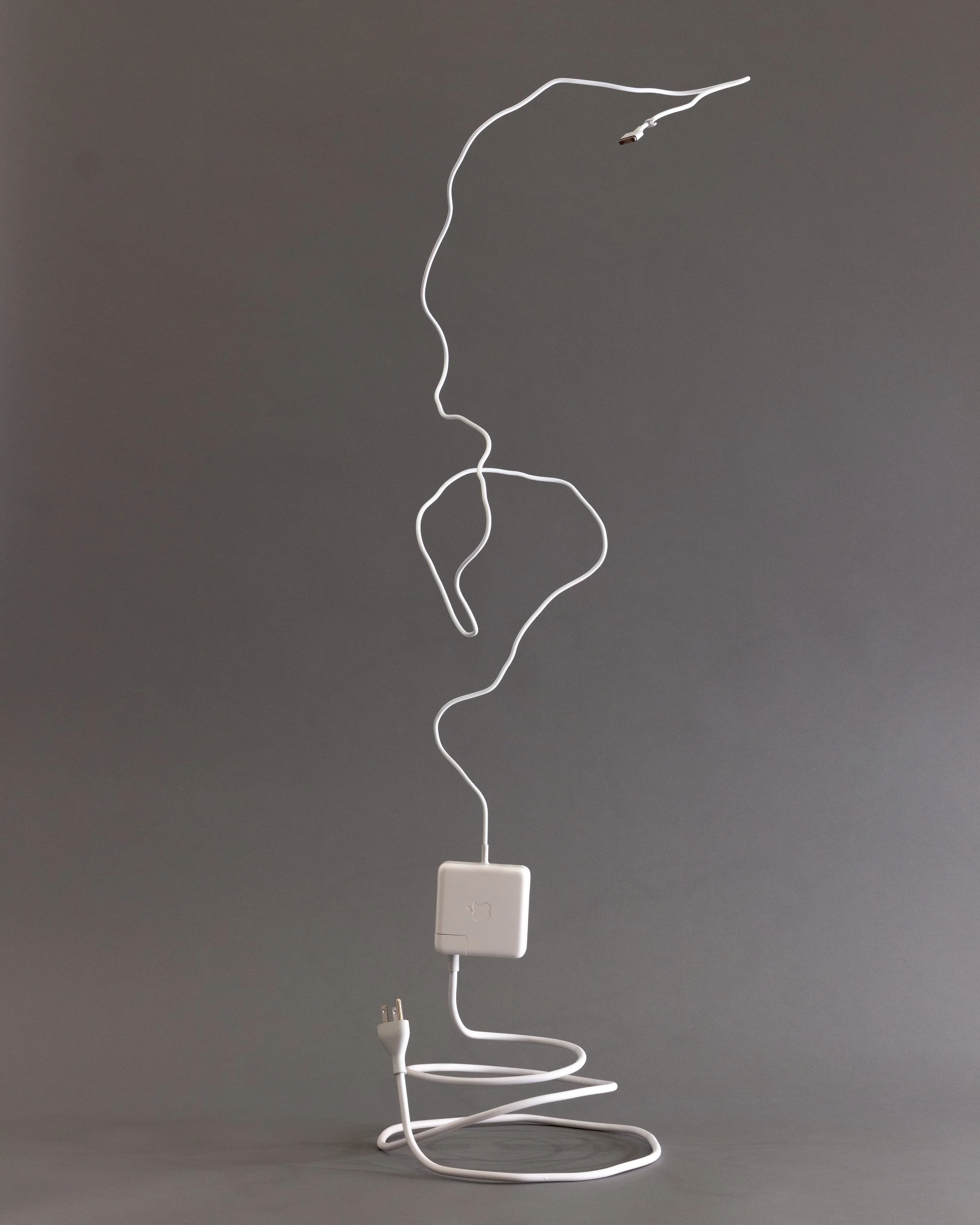Mauro C Martinez for French Fries Magazine issue 5
Interview by Alina Ferraro & Guilherme Ferrari
How’s Texas?
It's very nice, such a beautiful day outside. The weather's the best in Texas around this time of the year.
You studied in L.A.?
Yes, in Pasadena. I didn't graduate but yet I was there at the Arts Center College of Design for two semesters in Pasadena. It was a really cool, really great experience.
What is the first painting that you've ever done? How did you get into it?
The first painting I ever did was at the Art Center. I actually had never painted before college. It was really cool and interesting because I actually went to study illustration. My original idea was to become some sort of comic book artist and do graphic novels. I had only ever worked with pen and ink, and I had never touched a paintbrush before. Then one day I took my first painting class when I was there and it just completely changed my life. I was like, “this is what I need to be doing”.
I've always felt very optimistic about painting, its future and its continued relevance. I was initially very intimidated by it because the entire world of color was very different from working just the black and white that I had been used to with ink.
That's so amazing because I was so impressed to see your piece “The Last Man”, how big was it?
It's about eight and-a-half by six and-a-half feet. It's pretty big. That would be a little bit over two meters. Man, I'm so horrible at those conversions. I'm such a stereotypical American in that way (haha). It's big, it’s very big.
How many years passed until you actually got into this style you have now where you capture reality and are very honest about your storytelling?
It just kind of happened. It comes as a result of time and mostly as a result of trying to be different kinds of painter, almost like wearing different outfits and figuring out which ones suit you best. The best way for me to tell a story is anthropologically. Studying people is what interests me, and it’s fun for me to try to find the balance between how academic and chaotic I really am.
How do you choose your characters?
It mostly comes from what’s within my vicinity. Most of this idea came to me as a result of thinking back on certain experiences through the pandemic and right after. I have this really close group of friends and we were all addicted to drugs at the same time. We got clean at around the same time as well and have been for about ten years now. It’s a unique story where we all went through this hellish lifestyle and then came out of it together as a group.
Back when the pandemic started and we weren't able to hang out in person, I started joining them on their daily PlayStation parties. I got to have a closer look into the world of gaming. I remember seeing those pee bottles in his room all the time, water bottles filled with urine, in his own room because he just didn't want to get up to go pee. I was like, “Alex, what the fuck is that?” It's just what’s been close to me throughout my life. I also see the relationship to technology, there's these aspects to it that are sort of grotesque, but then at the end there’s a very authentic desire for human connection. It's almost like in order to maintain the continuity of that connection, you're willing to forego or to kind of negate your body a little bit.
You mentioned you were only in school for two semesters? Do you prefer to be a self-taught painter?
Well, if it was up to me, I would have finished school. But for some reason my student loans got denied and it was very sad because I had just gotten out of rehab I thought my life was basically over. Being self taught is great and all that, but I wish I had formal training. I do think now everything worked out the way it should though.
I really love the blurry paintings. Are you going political with those images?
I think some of them are political by default because we're living in a time that feels very polarized, and where people are very active politically to some degree.
What is the idea behind the show?
The general idea behind this exhibition was a comparison between Nietzsche's parable of the last man in which there's a prophet, and his name is Zarathustra. He spends time in the mountains in isolation. He realizes he's gained all this knowledge and that it's up to him to share it. So the prophet goes down to the nearest village and starts preaching this message of a life lived for consumption over creation and pitfalls that come with it. He talks about the death of God caused by the rising popularity of scientific reason. Zarathustra presents a picture of a society where every “hassle” has been taken care of, and everyone lives in the sweet complacency of convenience. Everything within grasp. The people of the village fall in love with it instead of being disgusted by it, and that's very much what has happened nowadays.
I think it’s a good reflection of our relationship with technology and even art. My goal was to recreate that experience and to draw attention to this false correlation between how engaged we are within society and moral superiority. I’m going against that common notion that throwing away your phone and going into the forest is the most morally absolutist, pure thing that you can do, and being online all day the worst thing you could do.
How do you see our future? What do you think about the future?
When it comes to our relationship with technology, I think that we're going to develop ways to make it much more personal. One of the key features of the future will be our ability to tailor and curate our every experience around us, whether it be how we look at things on social media, or glasses that allow us to kind of see things in a different way. We're already seeing this ability to hyper curate all of our experiences and I think that's going to increase. Maybe on the one hand, it's going to increase our ability to have the exact experience we want. On the other hand, it's going to decrease our ability to tolerate anything outside of what we want.
How important do you think history is in art? Because we're looking a lot into the future, but what do you think about the past, the history?
I think it's extremely important, and I try to acknowledge that in this show, especially by referencing Nietzsche. It proves that history doesn’t only repeat itself, but it rhymes. We see these older works becoming prophetic and invigorated by different scenarios. By looking at art history as a dialogue of the stories that happened before, you see a lot of similarities to what we're going through now, and I think it just shows us that we're going to be okay.
So you feel positive?
I'm super positive. I have no illusions about the future, but I am very positive about it.
What is the next thing you'd like to do? Continue painting, right?
Yeah, painting. And I'm kind of messing with sculpture a little bit more, which has been very fun.




